SALIERI’S COMIC GEM IS A MUST-SEE U.S. PREMIERE
As fires ravaged areas of Los Angeles last Friday, many companies were wondering whether to postpone, cancel or go on as planned. Pacific Opera Project (POP), “after much thought and deliberation with artists and staff,” decided to proceed with the their production of Antonio Salieri’s La scuola de’ gelosi. I think POP understands that this is to offer a reprieve and a feeling of connection. My guest noted that he saw POP’s Elixir of Love — also at Highland Park Ebell Club — when a transformer blew at the height of a heavy storm, yet the show went on without electricity — aided by flood and cell phone lights. For the spirit of shining through adversity, POP should get a prize.
In the meantime, it was the audience — patrons seated at tables drinking bottles of wine — who received a prize with this production. In the neglected margins of classical music history lies Antonio Salieri’s La scuola de’ gelosi (The School of Jealousy), an opera buffa written in 1778 for the Venetian Carnevale that dazzles with wit, charm, and a keen theatrical instinct. Long overshadowed by Mozart, Salieri here emerges not as a historical footnote but as a composer of genuine sophistication. Pacific Opera Project’s U.S. Premiere (!) brings this neglected masterpiece to vivid life, arguing persuasively for its place in the repertoire.
The opera, with a libretto by Caterino Mazzolà (best known for the final rewrite of Mozart’s La clemenza di Tito libretto), spins a tale of emotional intrigue and, you guessed it, jealousy. Two couples find themselves caught in a web of suspicion and social machination, a premise ripe for farce. The story features a bourgeois couple, Blasio and Ernestina. Blasio is consumed by unfounded jealousy, despite Ernestina’s unwavering fidelity. And then there is the flirtatious Count Bandiera, whose relentless womanizing causes endless frustration for his long-suffering wife, the Countess. Completing the lively ensemble are the servants, Lumaca and Carlotta — who are implied to be secret lovers — Warden of the Madhouse of Jealous Lovers (!), and the Lieutenant, who slyly helps to manipulate matters.
Yet Salieri and Mazzolà eschew simple comedy, crafting instead a nuanced exploration of insecurity and reconciliation. The lightness of opera buffa is maintained, but beneath its surface lies a surprising depth.
From the overture’s sparkling opening, Salieri’s command of orchestral texture is evident. POP’s reduced orchestra, led with precision by an extraordinarily expressive and effervescent Kyle Naig, also on harpsichord, highlights the composer’s sophisticated use of woodwinds as dramatic voices rather than mere accompaniment. In the celebrated Act II quartet, where the four principal characters’ emotions collide in counterpoint, the intricate interplay of melody and drama underscore Salieri’s theatrical prowess.
Baritone Tommy Glass, a 2019 Metropolitan Opera National Council Audition winner, anchors the cast with a dynamic portrayal of Blasio. Equal parts bluster and charm, his performance balances comic timing with emotional depth. In the Act I duettino with his wife Ernestina, his voice shimmered with comic flair, particularly in the mock-heroic delivery of “Al gran Can di Tartaria.” Yet he also conveys tenderness, revealing a humanity at the heart of the character. Opposite him, soprano Julia Johnson brings Ernestina to life with sparkling vocal agility and emotional sincerity. Her cavatina “Cattivo sego, sposine amabili” was a standout moment, showcasing her ability to navigate Salieri’s demanding passages with grace and precision.
Tenor Patrick Bessenbacher infuses the role of the Count with charisma and unexpected warmth, avoiding the trap of playing the character as a mere fop. His rendition of “Chi può vedere oppresso un idolo d’amor” was marked by fluid phrasing and technical assurance. Meanwhile, soprano Avery Boettcher, as the Contessa, gave a commanding performance. Her Act I aria “Ah, non è ver che in seno amor germogli amore” is sung with radiant beauty, her phrasing demonstrating both control and emotional depth. In ensembles, such as the Act II terzetto, her playful humor adds a lightness that contrasts effectively with her character’s emotional complexity.
Baritone E. Scott Levin delivers a delightful turn as the bumbling but endearing servant Lumaca, his comedic timing impeccable. Paired with soprano Emily Scott as Carlotta, the duo offers warmth and humor, elevating their secondary roles into memorable highlights. Tenor Dominic Salvati (the Lieutenant) and Sergio Manzo (the madhouse warden) rounded out the cast with skill, lending comic verve and vocal polish to their smaller roles.
Josh Shaw’s direction masterfully highlights the humor of the libretto, skillfully steering clear of caricature. This approach — a rare change of form — underscores the timelessness of marital issues, revealing that the struggles of couples in the 1800s are strikingly similar to those of today. Shaw’s proscenium set design evokes the faded opulence of Venetian palazzi, highlighting the battle of the sexes with fuchsia, teal, baby blue and Barbie pink colors on the paneled sets. Gorgeous period-appropriate costumes by Hailey Springer added texture, visually reinforcing the opera’s exploration of class and societal dynamics while giving us some serious eye candy.
Salieri’s influence on Mozart’s Così fan tutte is unmistakable — particularly in the themes of fidelity and the interplay of paired couples — but La scuola de’ gelosi stands firmly on its own. Where Mozart probes deeper psychological complexities, Salieri’s approach is lighter, though no less insightful. His harmonic language reveals a composer with a sharp ear for drama and a profound understanding of human emotion. The opera’s final ensemble, a celebration of forgiveness and mutual understanding, risks seeming conventional. Yet Salieri’s music imbues it with warmth and sincerity, transforming what could be a facile resolution into a moment of genuine reconciliation.
With this production, POP underscores its reputation as a vital force in Los Angeles’s cultural landscape. La scuola de’ gelosi may not match the depth of Mozart’s masterworks, but it possesses a charm and intelligence all its own, deserving a more prominent place in the operatic canon. As opera companies search for repertoire beyond the well-trodden staples, Salieri’s work stands ready for rediscovery.
photos by Nick Rutter
La Scuola de’ Gelosi
Pacific Opera Project
The Highland Park Ebell Club, 131 S. Avenue 57
performed in Italian with English supertitles
2.5 hours, including a 20 minute intermission
ends on January 19, 2025
for tickets, call 323.739.6122 or visit POP

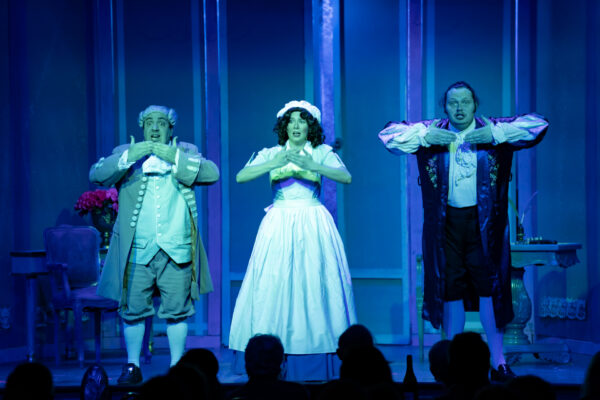
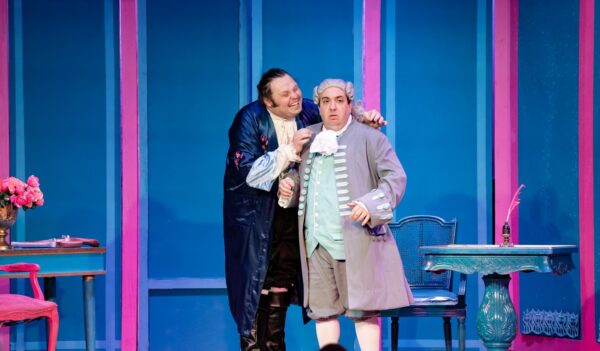
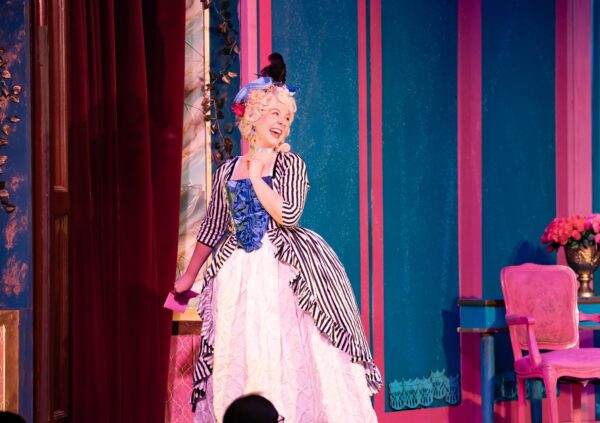
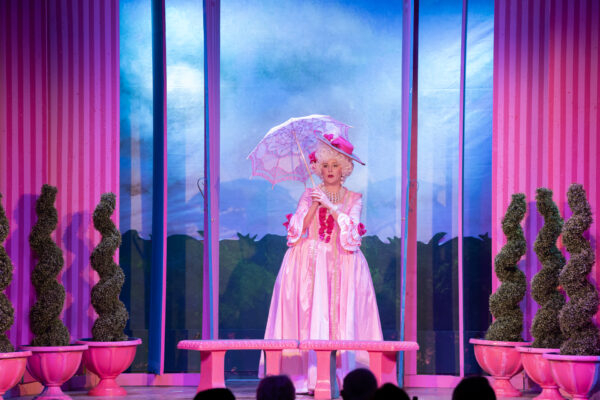

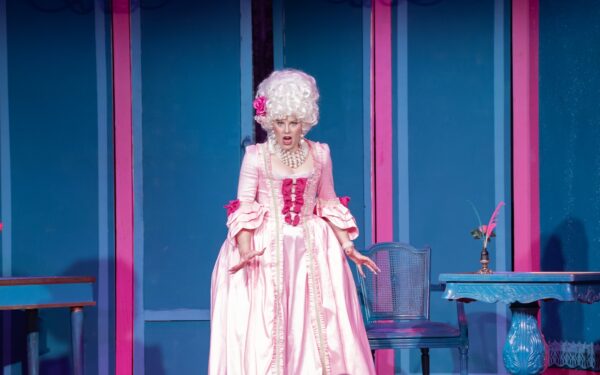
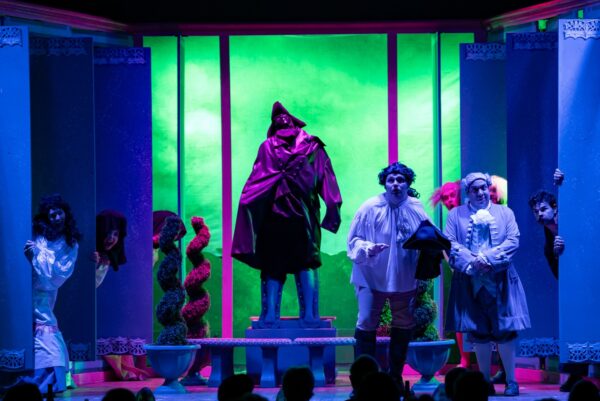
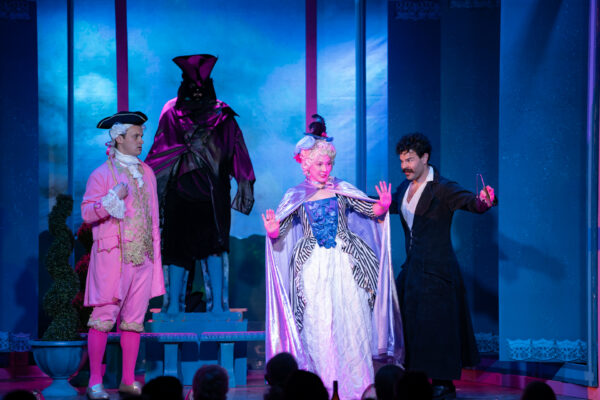
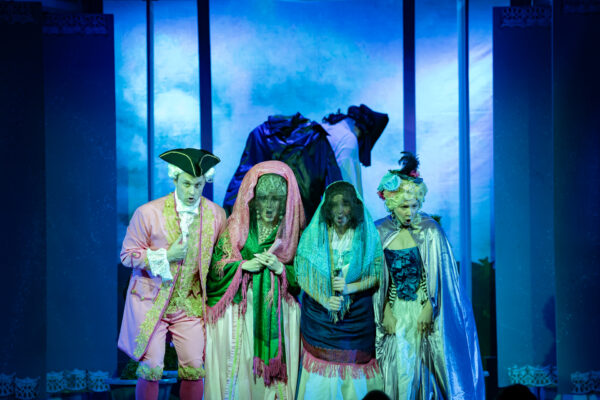
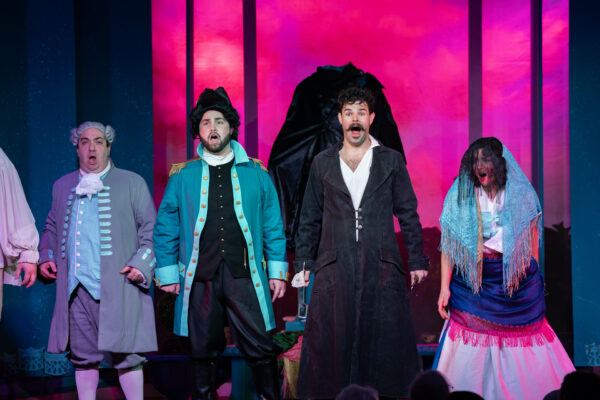
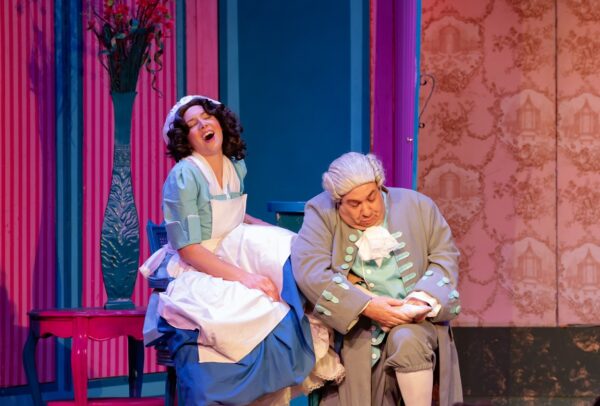
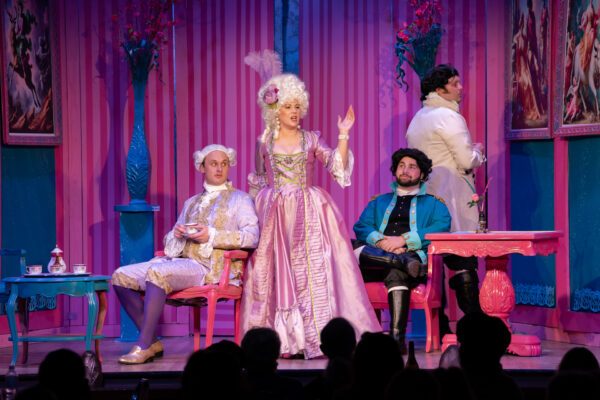
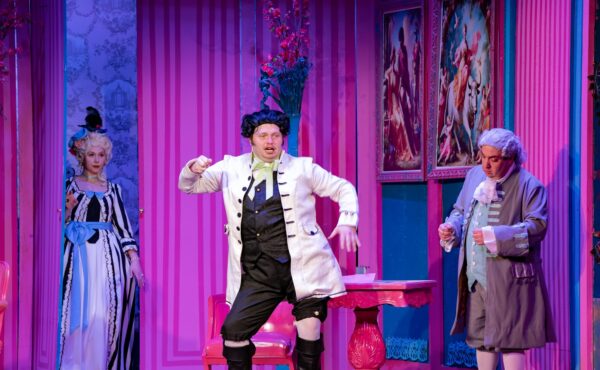
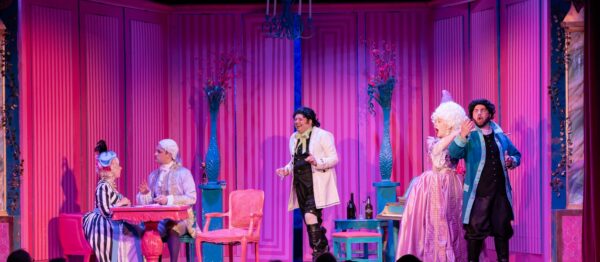

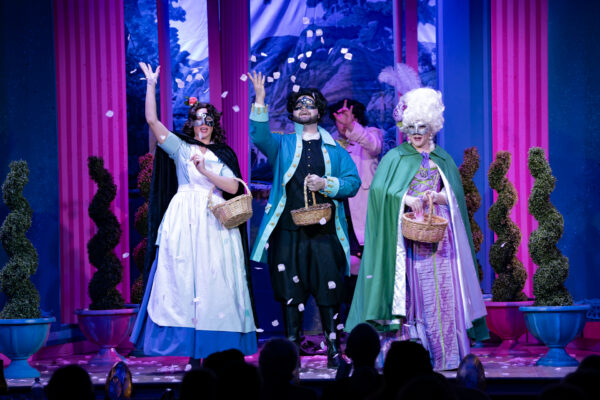


{ 1 comment… read it below or add one }
Tommy Glass (billed as Thomas Glass) stepped in for an ailing Peter Mattei and sang the role of Starbuck at the Metropolitan Opera opening night of Heggie’s Moby Dick.
It’s always exciting to see POP artists moving on to bigger stages.